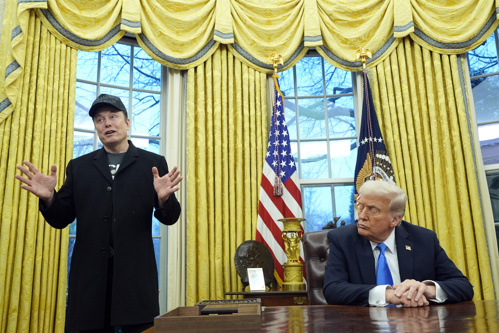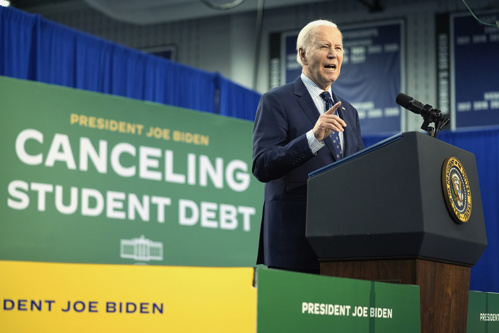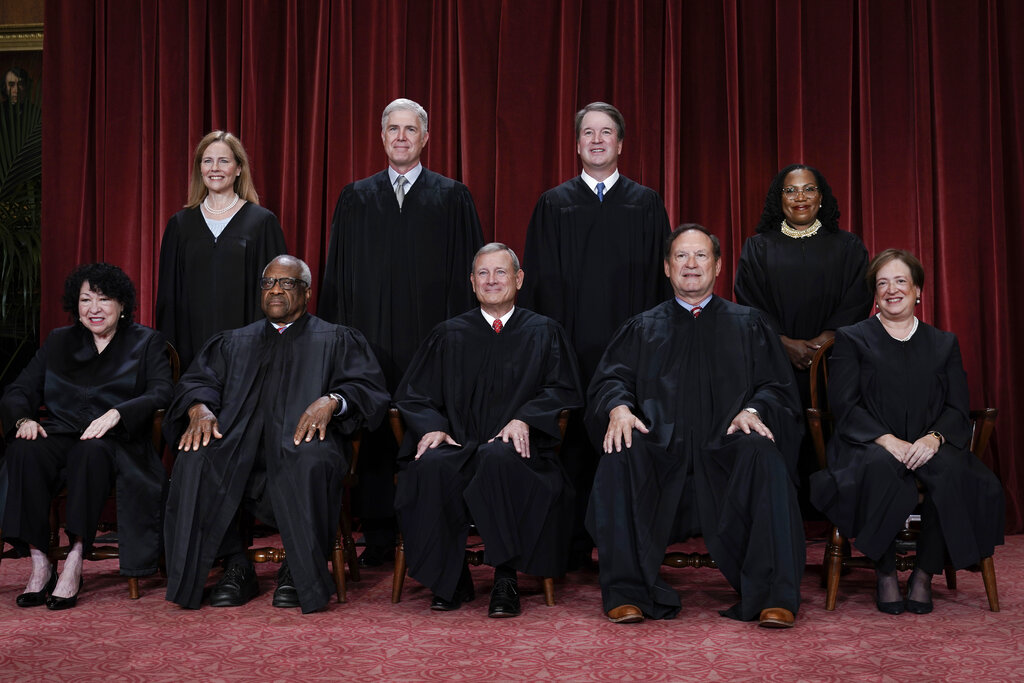Thanks to those lawsuits, the checks and balances of the federal government have now empowered a judicial branch that has slowed a number of Trump’s initiatives, too.
This is not a surprising development nor a reason to panic, Sen. Ted Cruz (R-Texas), an attorney by trade, told the Washington Watch program Tuesday.
Cruz, who was Texas solicitor general before winning a Senate seat, told show host Tony Perkins he sees a clear strategy by Trump to return a level of presidential authority guaranteed by the U.S. Constitution.

The power of impoundment once allowed the chief executive to decline to spend money even though the money had been appropriated by Congress. That power was curtailed by the Impoundment Control Act of 1974.
“Impoundments have existed for a long time,” said Cruz, and they could form the basis of Trump's argument against recent judicial decisions.
Fighting among political parties has been around a long time, too, and that didn’t change because Trump won 312 electoral votes and had an edge of almost 2 ½ million in the popular vote.
Joe Biden, in four years as president, didn’t have the opportunity to remake the U.S. Supreme Court, which may ultimately decide some of these matters, but he did appoint 228 lower-level federal judges.
“We can expect throughout the Trump presidency that there is going to be a wave of lawsuits," Cruz advised. "Lawsuits from Democrat (state) attorneys general, lawsuits from left-wing interest groups, and then some of the lawsuits are going to prevail at least at different points in time."
Weeks into President Trump's term, just a a few judicial rulings against the Trump administration less include:
- Trump’s effort to block birthright citizenship.
- The freeze on federal spending.
- The transfer of biological male inmates from women’s prisons to male-only prisons.
- Efforts to identify FBI agents involved in the Jan. 6 investigations.
- DOGE access to Treasury Department systems.
- The attempt to put 2,200 USAID staff on administrative leave.
- The offer to buy out more than 2 million federal employees.
 “We’ve never seen a president hit the ground running this fast and with this much shock and awe,” Cruz said.
“We’ve never seen a president hit the ground running this fast and with this much shock and awe,” Cruz said.
Nor has so much authority extended so quickly to a high-profile private citizen, Elon Musk, who was a fixture on last fall’s Trump campaign.
Cruz said the work Elon Musk is doing with DOGE is on the mark and is necessary.
“It’s incredibly important, and he’s very much embodying the Silicon Valley ethos of move fast and break things. He’s targeting and highlighting egregious waste and working to shut it down,” Cruz said.
Precedent for ‘ignore’ approach
Some Trump supporters would like to see the president ignore the courts and move ahead. There’s certainly a recent precedent for this.
Biden ignored a Supreme Court ruling that said he could not arbitrarily cancel student loan debt. He cancelled away, forgiving student debt to the tune of $183 billion in his final days in office.
 Ignoring the courts and moving ahead could bring short-term wins for Trump, but would it paint him as a disinterested in the power of the court and open the door for critics to paint him as a dictator? That’s another layer of conversation among the president’s supporters.
Ignoring the courts and moving ahead could bring short-term wins for Trump, but would it paint him as a disinterested in the power of the court and open the door for critics to paint him as a dictator? That’s another layer of conversation among the president’s supporters.
For now, the administration appears ready to fight within the system which would mean a challenge to the existing Impoundment Control Act law.
“Republicans and Democrats have exercised impoundment power for centuries,” Cruz said.
“Richard Nixon in the 1970s was very aggressive exercising impoundment, and Congress passed a law that sought to rein in that power, and the Supreme Court upheld that law. I believe what the Trump administration is doing is engaging in a systematic litigation strategy to return the Constitutional power of impoundment to the president. Doing so would be very, very good for reining in the out of control spending we're seeing.”
AFR morning host Jenna Ellis, a Trump attorney during his first term, told AFN the judges have moved outside of their authority.

“This a constitutional principle, not just in the separation of powers, but with the limitations of powers that are specifically textually in the Constitution. The judicial branch cannot inform the executive or the legislative branch on policy," she advised. "So this is a question of can the executive branch under President Trump's authority undertake the actions that they're doing? And the answer, unquestionably, is yes."
The administration has ways to respond beyond impoundment that she believes would be successful.
“[Trump] should also say unquestionably that this is an unconstitutional opinion (by the judges), and he's going to continue being the head of the executive branch under the authority that the U.S. Constitution provides," Ellis advised. "Judges are still under the Constitution. They can't modify unilaterally the Constitution to bend to their policy initiative. That's called activism."
Not a crisis, Musk says
Posting on his social media platform X, Musk mocked news outlets Wednesday for suggesting DOGE and the spending cuts it is making are a “Constitutional crisis.”
In Musk’s post, eight different news outlets used the same phrase in their headlines.
“They need to mix it up a little more. Maybe use a thesaurus or something,” he wrote.
Musk, in a Tuesday appearance with Trump in the Oval Office, said a DOGE review of Social Security shows benefit checks going to recipients who are 150 years old.
DOGE is doing good work in “highlighting egregious abuses,” but Congress still plays an important role, Cruz said.
“Congress, at the end of the day, has the power of the purse and we appropriate funds," Cruz said. "I think we need to see congressional leadership be every bit as bold as President Trump is being right now.”







